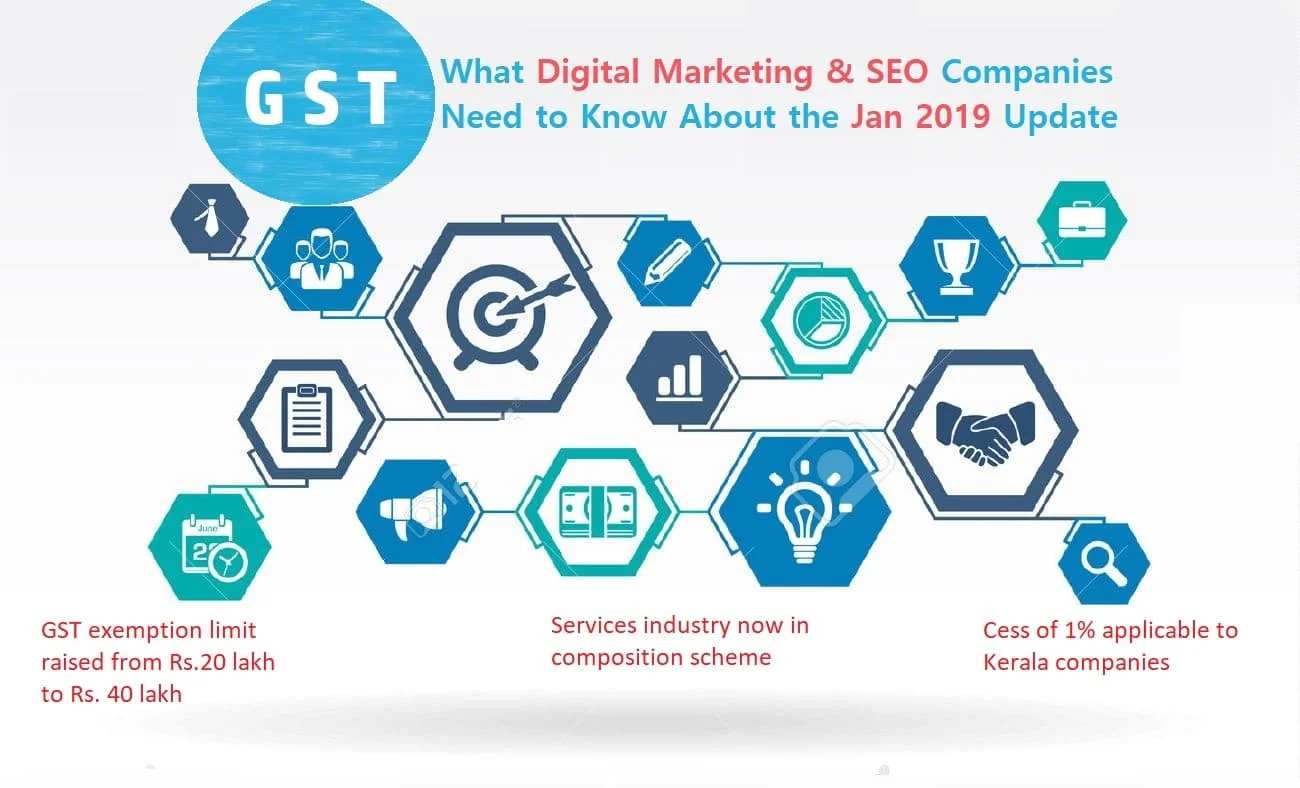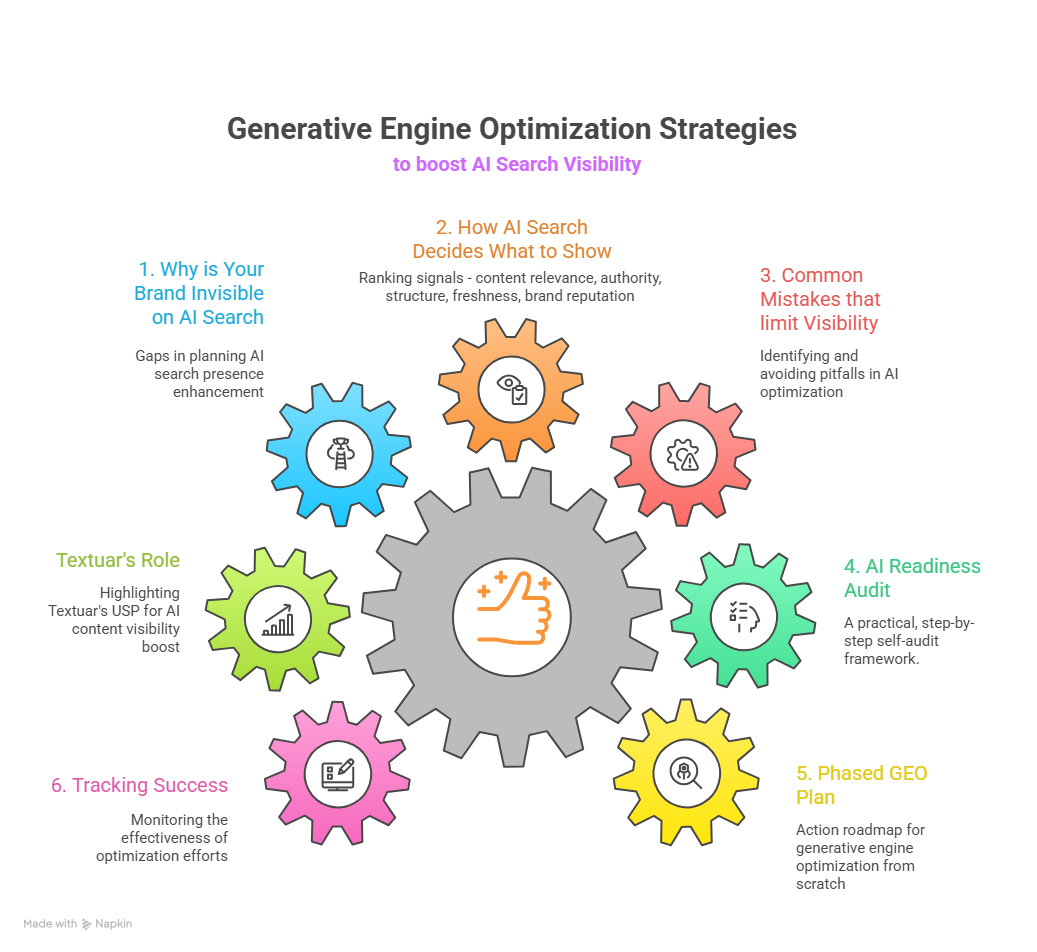The 32nd meeting of GST council headed by Finance minister Arun Jaitley came up with a series of measures aimed at MSMEs. With the fairly exciting phase the digital marketing industry is going through, this relaxation of norms will aim to help many entrepreneurs in content marketing and SEO.
Who does it impact?
It is interesting to note that 45% of the digital marketing companies have less than 10 employees, while 33% have less than 30 people. For these 78% of the companies, their turnover is bound be less than Rs. 40 lakhs (give or take a few outliers)
The 10th Jan 2019 GST updates will surely affect these almost 4/5th of the industry including our content writing agency.

A look at the GST updates for digital marketing companies
Interested to see what these updates are that will impact the entire domain digital marketing in India? Then let’s read on and find out:
1 – GST exemption limit raised
Earlier – up to Rs. 20 lakhs annual turnover
Now – up to Rs. 40 lakhs annual turnover
Many digital marketing companies earning a turnover between Rs. 21 lakhs to Rs. 40 lakhs rued the burden of GST compliance and subsequent CA fees hike. The new announcement is expected to spread cheer to these companies as it raised the exemption threshold to Rs. 40 lakhs.
States can decide either of the two slabs – exemption of Rs. 20 lakhs or of Rs. 40 lakhs. In Maharashtra and Karnataka (two hubs of digital marketing) the Rs. 40 lakh exemption will apply in all probability.

2 – Services industry in composition scheme
Earlier – Services sector not in composition scheme
Now – Services sector and mixed supply (booth goods and services) are now in composition scheme
Service suppliers like online marketing agencies in India or content writers can avail of composition scheme at a flat rate of 6% (3% for cGST and 3% for sGST) in case they have an annual turnover of less than Rs. 50 lakhs in the past year. This low-compliance scheme is bound to bring joy to many SEO content writing companies with advantages like
1 – File returns just once a year
2 – Pay at a flat rate
It is important to note that the digital marketing companies cannot claim input tax credit if they opt for composition scheme. Hence they will have to pay the tax from their own pocket.
For content marketing companies and other businesses, they would need to register by filling up the GST CMP-01 form. They need to be on the lookout for filings under GSTR-4.
3 – Cess of 1% applicable to Kerala companies
Earlier – No Cess
Now – 1% cess for two years
Digital marketing companies and other businesses in Kerala will have to bear 1% cess for two years to aid the rebuilding effort after the devastating rain and floods that ravaged the state in August 2018.
To sign off
The Times of India reports that these updates will have an annual revenue impact of Rs. 3000 crore. It is important to note that these updates will come into effect from 1st April 2019. So, plan your tax year ahead smartly and save big bucks on your financial compliance related costs for your digital marketing company.










